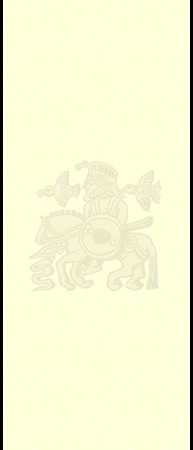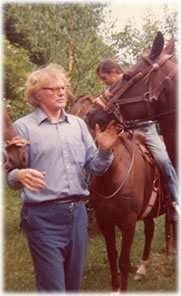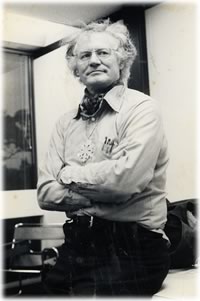



| Web site design and maintenance by Akikaze Media Services. All content of this site, unless otherwise noted, is copyright ©2001 Robert Bly. All Rights Reserved. Any duplication, in any form without the written consent of the copyright holder is prohibited. |
Interviewer: When the war was over, were you finally able to spend more time with your writing, with your wife and your children? What did you write then?
 Robert Bly: I tried to do a long initiatory or autobiographical poem called "Sleepers Joining Hands." I worked on it a long time, but it never really cohered, probably because I didn't have enough solitude during those years. The protests took a lot of time, and I needed to earn money as well for the children, who were going to college eventually.
Robert Bly: I tried to do a long initiatory or autobiographical poem called "Sleepers Joining Hands." I worked on it a long time, but it never really cohered, probably because I didn't have enough solitude during those years. The protests took a lot of time, and I needed to earn money as well for the children, who were going to college eventually.
Interviewer: Wasn't that the time you also began the prose poems collected in This Body Is Made of Camphor and Gopherwood?
Robert Bly: Oh, those were better! Those were sweet! I owe those to Kabir and Rumi. Camphor and Gopherwood were my first "Beloved" poems. I wrote them while sitting on the floor of my meditation corner, struggling with the Tagore's English for Kabir and the Arbery's English for Rumi. For about four years there was the absolute delight of writing these Camphor and Gopherwood poems, and writing also a number of poems in lines which were gathered in a book called Loving a Woman in Two Worlds.
Ruth Counsell entered my life in 1972. Carol Bly and I agreed to divorce in 1979, and Ruth Counsell and I were married the next year.
Interviewer: It seems odd to me that these love poems–so passionate–should come relatively late in your life–you must have been 46 or so in 1972. Why weren't they written in your twenties?
 Robert Bly: There's something backward about my life . . . so many things happen out of time. I suppose I spent–or wasted–much of my twenties alone in a New York room, during the years I've described. At that time I couldn't be both a lover and an artist, so I decided to be an artist only. But these late-arriving things cause a lot of suffering and grief for others.
Robert Bly: There's something backward about my life . . . so many things happen out of time. I suppose I spent–or wasted–much of my twenties alone in a New York room, during the years I've described. At that time I couldn't be both a lover and an artist, so I decided to be an artist only. But these late-arriving things cause a lot of suffering and grief for others.
Interviewer: How was Loving a Woman in Two Worlds received?
Robert Bly: With alert indifference. Fred Chappell reviewed the book in the Times Book Review and said it wasn't a real book of love poems, because there wasn't enough hatred and anger in it. In a way, he's right, but only in a thoroughly modern way. That book has links to the 13th century French and German troubadours. It's about seven centuries out of date.
Interviewer: Why are so few love poems written today?
Robert Bly: A lot of angry love poems are written. Is that an answer?
Interviewer: Not to me.
Robert Bly: Yeats broods about that in his poem, "The Two Trees." He says one tree, a holy tree, grows in the heart. The other tree is full of the "ravens of unresting thought." It's hard to get out of the raven tree, whether you are a man or a woman. It was Kabir and Rumi who helped me get away from the "ravens of unresting thought." One of the poems in Loving a Woman in Two Worlds goes this way:
Every breath taken in by the man
Who loves, and the woman who loves,
Goes to fill the water tank
Where the spirit horses drink.